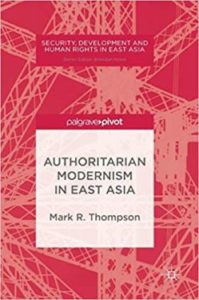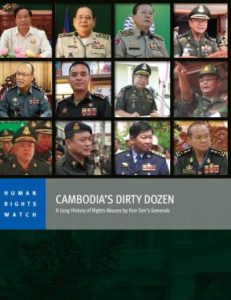 Over the past decade, democracy has regressed in much of Asia, though there are notable exceptions including Malaysia and Taiwan. Southeast Asia has witnessed a reversal in Thailand, weakening institutions and norms in Bangladesh, India, and the Philippines, backsliding in Cambodia and even to some extent Indonesia, and sustained authoritarian rule in Laos and Vietnam, among other examples, notes Council on Foreign Relations analyst Joshua Kurlantzick.
Over the past decade, democracy has regressed in much of Asia, though there are notable exceptions including Malaysia and Taiwan. Southeast Asia has witnessed a reversal in Thailand, weakening institutions and norms in Bangladesh, India, and the Philippines, backsliding in Cambodia and even to some extent Indonesia, and sustained authoritarian rule in Laos and Vietnam, among other examples, notes Council on Foreign Relations analyst Joshua Kurlantzick.
More disturbingly, China could clearly challenge the notion that modernism must necessarily, eventually, lead to political liberalization, according to a concise but well-argued new book, China could indeed further modernize without democratizing, Mark Thompson, Director of the Southeast Asia Research Center at the City University of Hong Kong, argues in Authoritarian Modernism in East Asia.
Since 2015 the Cambodian government, led by Prime Minister Hun Sen, has increasingly restricted political and social activism, civil society, independent media, and foreign-funded democracy programs. During 2015-2017, more than 25 opposition members and government critics were arrested, and many fled the country. On July 10, 2016, government critic Kem Ley was killed under suspicious circumstances, the Tom Lantos Human Rights Commission adds:
In 2017, the Cambodian Foreign Ministry expelled the National Democratic Institute (NDI – a partner of the National Endowment for Democracy) on the grounds that it was not registered with the government; closed 32 radio frequencies affecting stations relaying Voice of America, Radio Free Asia and Voice of Democracy; and ordered the independent English-language newspaper Cambodia Daily to shut down, ostensibly for failing to pay taxes. In November 2017 the Supreme Court of Cambodia, at the government’s behest, dissolved the Cambodia National Rescue Party (CNRP), the country’s principal opposition party. As a result, the ruling Cambodian People’s Party (CPP) ran virtually unopposed in the 2018 National Assembly election. In November 2018 the government ended the work of the Khmer Rouge Tribunal, charged with prosecuting former Khmer Rouge officials for crimes against humanity and war crimes.
 Youk Chhang (right), Executive Director of the Documentation Center of Cambodia (DC-CAM), a former NED grantee, received the Center for Justice and Accountability’s 2017 Judith Lee Stronach Human Rights Award. Chhang was honored for the extraordinary work that he and DC-CAM did collecting hundreds of thousands of pages of documentation of crimes against humanity committed by the murderous Khmer Rouge regime.
Youk Chhang (right), Executive Director of the Documentation Center of Cambodia (DC-CAM), a former NED grantee, received the Center for Justice and Accountability’s 2017 Judith Lee Stronach Human Rights Award. Chhang was honored for the extraordinary work that he and DC-CAM did collecting hundreds of thousands of pages of documentation of crimes against humanity committed by the murderous Khmer Rouge regime.
Please join the Tom Lantos Human Rights Commission and the Congressional Cambodia Caucus for a hearing on human rights, including labor rights, in Cambodia. Witnesses will examine the multiple, interacting dimensions of the deteriorating human rights situation in Cambodia and offer recommendations for congressional action.

Human Rights Watch
Panel I
- Tola Moeun, Executive Director, Center for Alliance of Labor and Human Rights CENTRAL
- Taeng Pa, Executive Director, Cambodia Center for Independent Media
- Jessica Champagne, Deputy Director for Field Operations and Strategy, Worker Rights Consortium
- Olivia Enos, Senior Policy Analyst, Asian Studies Center, The Heritage Foundation (and former NED Penn Kemble fellow)
- John Sifton, Asia Advocacy Director, Human Rights Watch
Labor and Human Rights in Cambodia
Wednesday, September 11, 2019. 3:00 – 4:30 p.m. 2200 Rayburn House Office Building, Capitol Hill, Washington, DC. Co-Hosted by the Congressional Cambodia Caucus
This hearing will be open to Members of Congress, congressional staff, the interested public, and the media. The hearing will be livestreamed via the Commission website and will also be available for viewing on the House Digital Channel service. For any questions, please contact Kimberly Stanton at 202-225-3599 (for Co-Chair McGovern) or Piero Tozzi at 202-225-3765 (for Co-Chair Smith).







